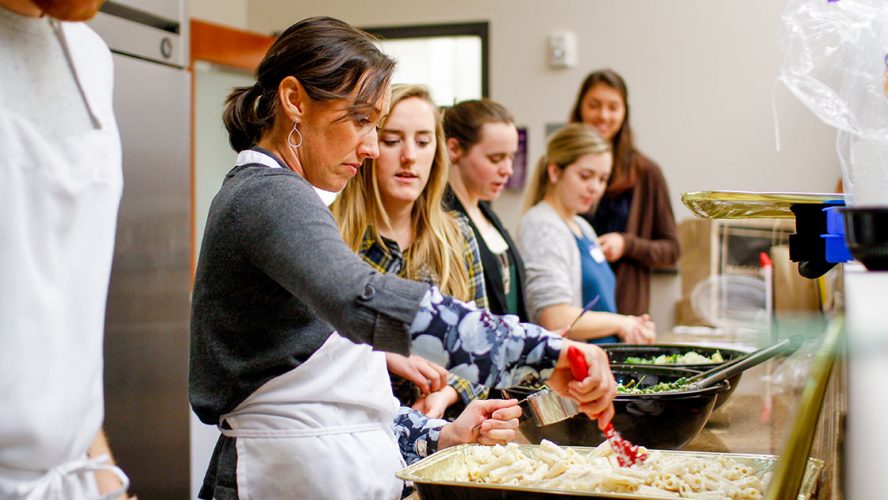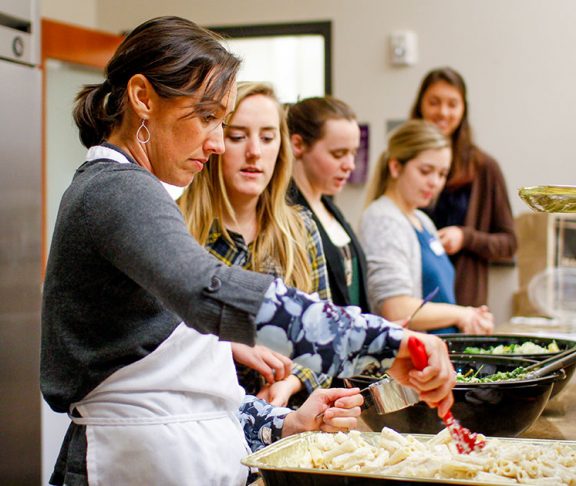As the largest student movement against food waste and hunger in the nation, the Food Recovery Network is making a difference one meal at a time.
When students at the University of Maryland noticed perfectly good dining hall food ending up in the garbage during the 2011 school year, they decided to take action. By the end of the year, their newly-formed Food Recovery Network (FRN) had provided thousands of meals to nearby hunger-fighting nonprofits. And it was only the beginning. In just six years, FRN has expanded to 235 college campus chapters in more than 40 states.
How it works
Through the network, surplus food from campus cafeterias, area restaurants, local events and farms is packaged and then delivered to organizations helping those in need.
“Our students recover food one carload at a time and bring it to a nonprofit agency in their local community where they have forged deep connections,” explains FRN executive director Regina Northouse. “Many donate the food, then actually volunteer by mentoring children and helping serve meals.”
Northouse describes FRN as a national organization with a local solution to two complex issues: perfectly good food being sent to landfills, which creates tremendous damage to the environment, and the millions of Americans who go to bed hungry each night.
“Our goal is to support higher education in being the first sector where food recovery is the norm, not the exception,” says Northouse.
Reaching a milestone
To date, more than two million pounds of food that otherwise would have gone to waste has been donated through FRN, resulting in over 1.8 million meals provided.
“It took FRN four years to reach our first one million pounds of food, but only 18 months to reach our second million pounds,” Northouse explains. “Our movement is growing rapidly because there are thousands of students who say, ‘I want to change how we think about our food system, and I want to help my community.'”
First-hand experience
FRN program manager Hannah Cather began as a volunteer in 2014, inspired by a photojournalism assignment.
“I tagged along on a late-night post-football game recovery and saw hundreds of pounds of food get recovered: huge hunks of steak and piles of hot dogs,” explains Cather. She applauds today’s students, who are determined to make a difference. “The U.S. wastes billions of dollars throwing away food, while one in six Americans is food insecure. The more food we recover, the more hungry people we can feed.”
She adds, “If you believe in protecting the planet or the people on it, food recovery is a solution to so many problems.”

